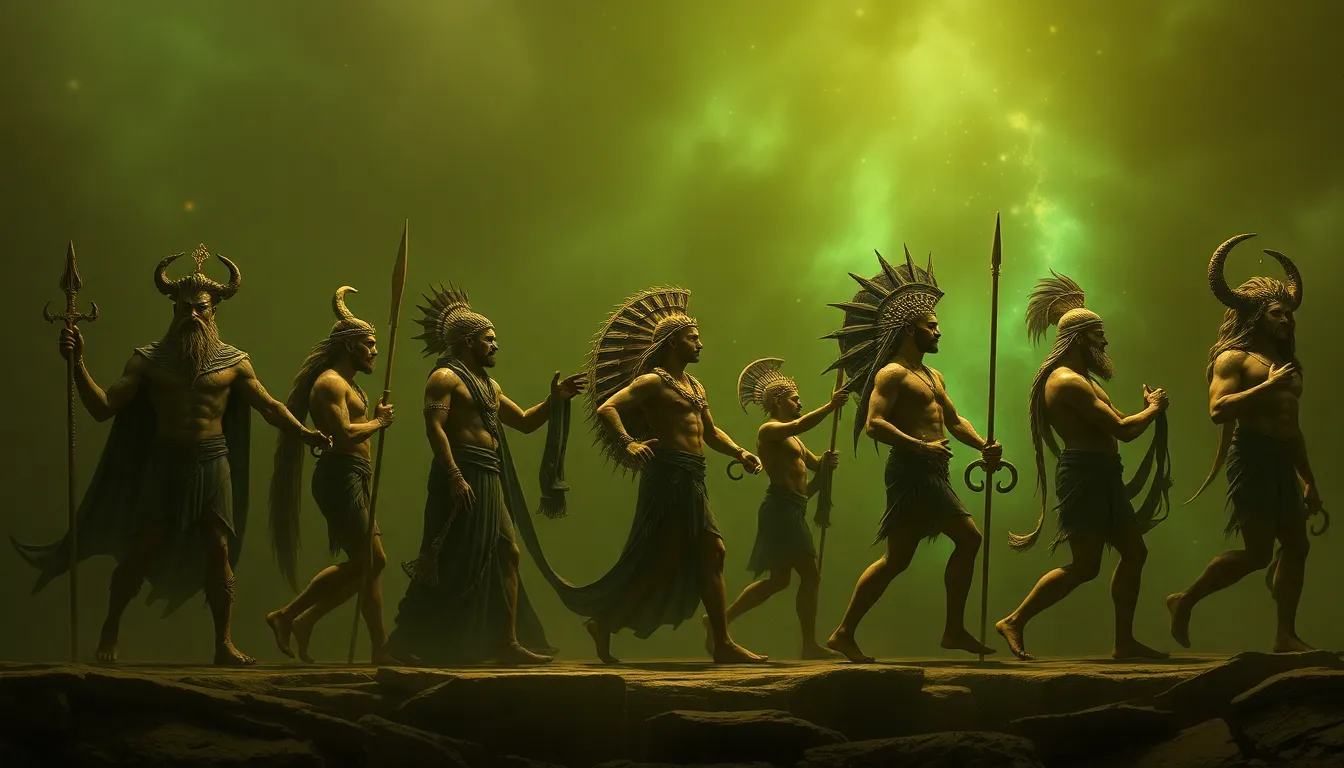The Myth of the Tragic Choice: Morality in Decision Making
I. Introduction
The concept of a “tragic choice” refers to a situation in which an individual must make a decision that leads to a regrettable outcome, often involving moral dilemmas where all options seem to result in negative consequences. This notion has significant implications in various fields, including philosophy, psychology, and ethics.
Morality plays a crucial role in decision-making, influencing how individuals weigh their options and the ethical implications of their choices. Understanding the myth of the tragic choice is essential in recognizing how we navigate complex moral landscapes.
This article aims to explore the myth of the tragic choice and its implications for individual decision-making and broader societal contexts.
II. Historical Context of Tragic Choices
The origins of the tragic choice concept can be traced back to philosophical literature, where thinkers grappled with moral questions that challenged conventional ideas about right and wrong.
- Aristotle discusses moral virtues and the importance of practical wisdom in decision-making.
- Immanuel Kant emphasizes duty and universal moral laws, contributing to deontological ethics.
- John Stuart Mill advocates for utilitarianism, focusing on the consequences of actions.
Over time, the narrative of tragic choices has evolved, reflecting cultural contexts and the complexities of human experience. From literature to film, these narratives illustrate the struggles individuals face when confronted with difficult moral decisions.
III. The Psychological Underpinnings of Decision Making
Decision-making is not merely a logical process; it is deeply influenced by psychological factors. Various cognitive biases can skew our perception of moral choices, leading to less-than-optimal outcomes.
- Cognitive biases: These include confirmation bias, where individuals favor information that supports their beliefs, and availability heuristic, which relies on immediate examples that come to mind.
- Emotions: Emotions play a significant role in how decisions are made. Fear, guilt, and empathy can all influence the moral weight of a choice.
- Stress and urgency: High-pressure situations can lead individuals to make hasty decisions, often resulting in regrettable outcomes.
IV. The Dichotomy of Moral Frameworks
Different moral frameworks provide varying lenses through which tragic choices are perceived and evaluated. Two prominent frameworks are:
- Utilitarianism: This ethical approach advocates for actions that maximize overall happiness and minimize suffering. Tragic choices, in this view, are made based on the consequences of actions.
- Deontological ethics: This framework focuses on the morality of actions themselves, regardless of the consequences. Here, tragic choices may be viewed as violations of moral duties.
Case studies illustrate how these conflicting moral frameworks can lead to different interpretations of the same tragic choice, highlighting the complexity of moral decision-making.
V. The Role of Context in Defining Tragic Choices
Context plays a significant role in shaping moral decisions. Situational ethics suggest that the morality of an action can depend on the circumstances surrounding it.
- Cultural influences: Different societies have varying norms and values that affect perceptions of right and wrong.
- Personal values: Individual beliefs and experiences can significantly impact decision-making in tragic scenarios.
This variability underscores the importance of understanding the broader context in which moral decisions are made.
VI. The Illusion of Choice in Tragic Scenarios
Often, individuals facing tragic choices may feel that there are no good options available. This perception can lead to significant psychological distress.
- No good options: The belief that all available choices will lead to negative outcomes can create a sense of hopelessness.
- External pressures: Social, political, or economic pressures can further constrain perceived choices, leading to feelings of moral failure.
The psychological aftermath of making tragic choices can include guilt, shame, and anxiety, which may linger long after the decision has been made.
VII. Moral Responsibility and Accountability
Moral agency is a critical aspect of decision-making, as it involves the capacity to make ethical choices and be held accountable for their outcomes.
- Blame and responsibility: Society often grapples with who is to blame for tragic outcomes, complicating the moral landscape.
- Public perception: Individuals who face tragic choices may be judged harshly, impacting their mental health and societal standing.
Understanding moral responsibility in these contexts is essential for fostering compassion and empathy towards those who navigate difficult moral dilemmas.
VIII. Case Studies: Real-Life Applications of the Tragic Choice
Real-life examples of tragic choices can be found across history, demonstrating the complexities of moral decision-making.
- Historical leaders: Figures such as Abraham Lincoln faced tragic choices during times of war, weighing the costs of human life against political necessity.
- Healthcare dilemmas: Medical professionals often encounter tragic choices, such as triage in emergency situations during pandemics.
- Personal narratives: Individuals share their stories of facing tragic choices, illustrating the emotional and moral weight of their decisions.
IX. Rethinking the Tragic Choice Narrative
It is essential to explore alternative approaches to moral decision-making that can mitigate the impact of tragic choices.
- Dialogue and deliberation: Encouraging open discussions about moral dilemmas can help individuals navigate complex choices more effectively.
- Ethical frameworks: Integrating various ethical perspectives can provide a more comprehensive understanding of the implications of choices.
By rethinking the tragic choice narrative, we can foster a more nuanced understanding of morality in decision-making.
X. Conclusion
In summary, the myth of the tragic choice highlights the complexities and challenges of moral decision-making. By understanding the historical context, psychological underpinnings, and the role of different moral frameworks, we can better navigate these dilemmas.
As we move forward in an increasingly complex world, the relevance of morality in decision-making remains paramount. It is crucial for individuals and society to engage in meaningful dialogue and reflection on the moral choices we face.
We must strive to create environments that support ethical deliberation and empower individuals to make informed decisions, recognizing the weight of their choices while fostering understanding and compassion.



